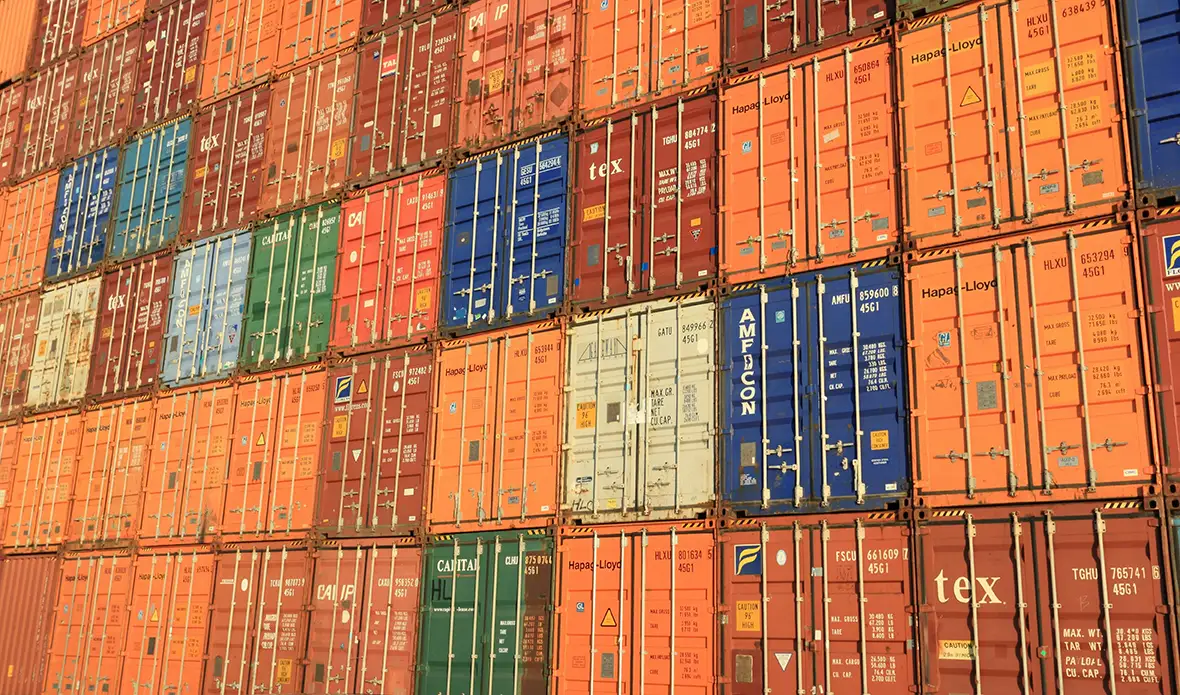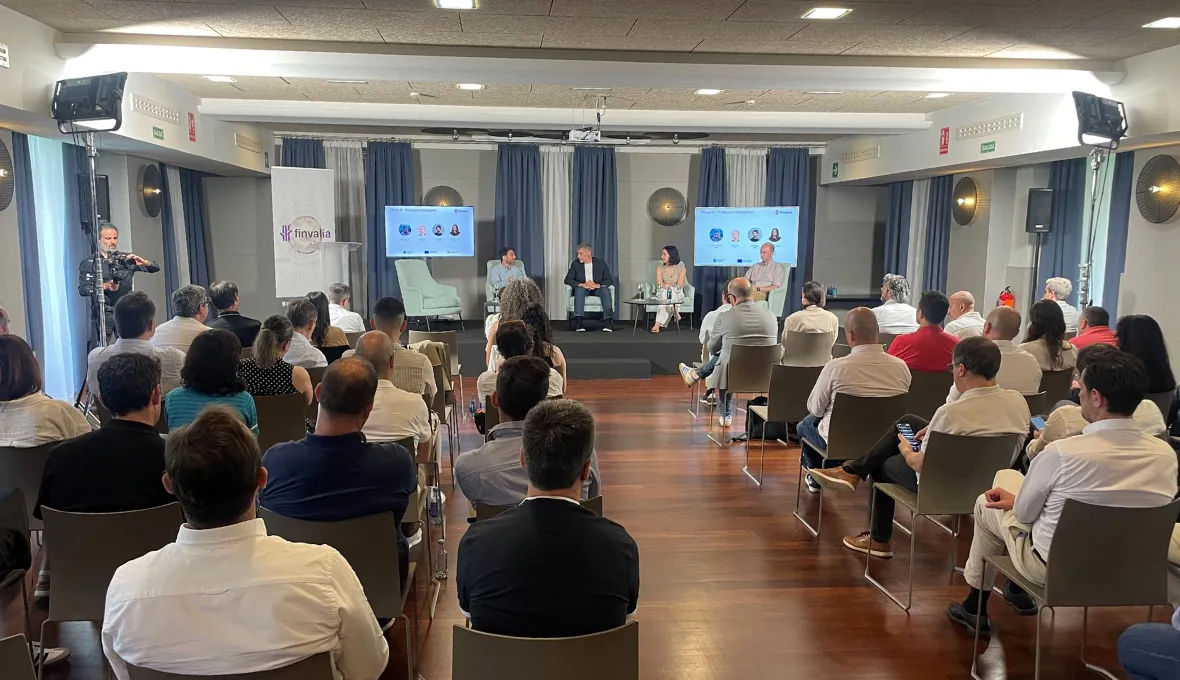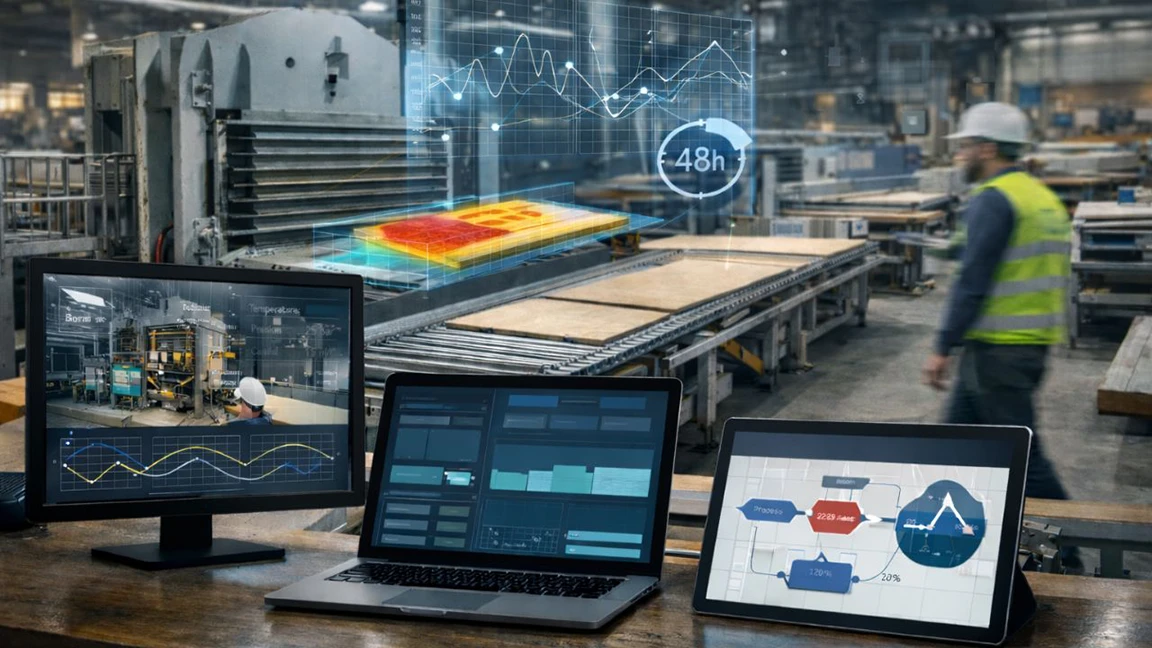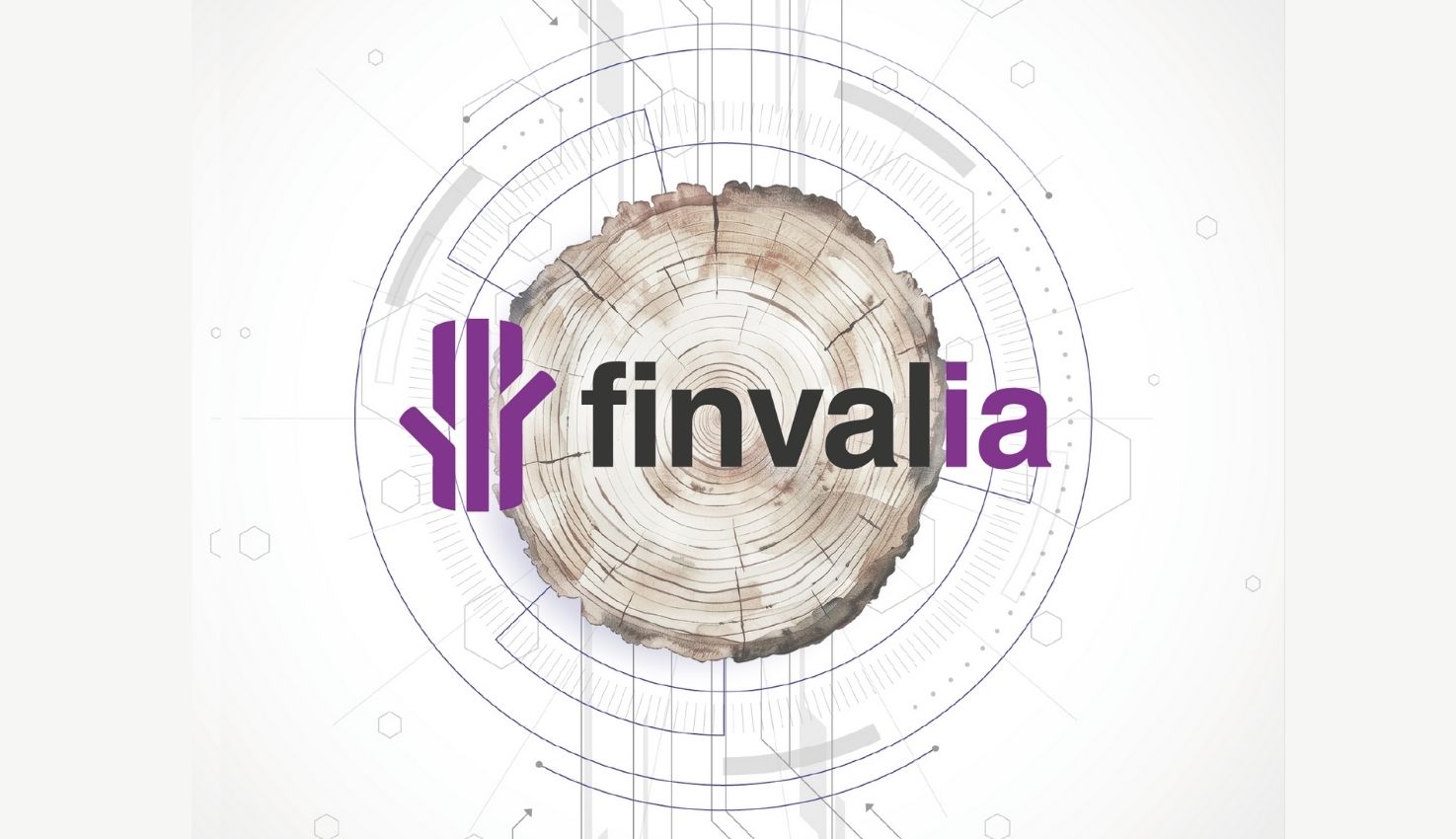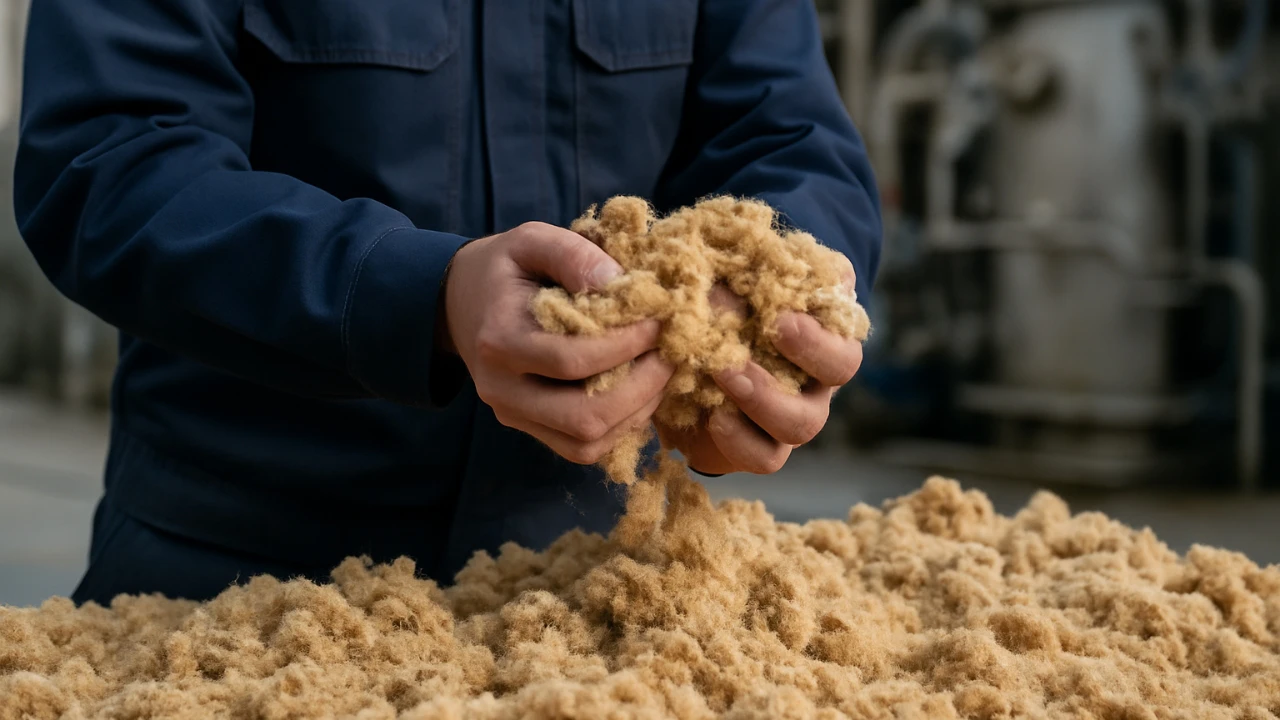FINVALIA FOCUSES ON DIGITALIZATION TO MODERNIZE THE WOOD INDUSTRY VALUE CHAIN
We start the research project with a horizon set for 2026
On July 9, 2023, we officially presented Finvalia, the research program funded by the Axencia Galega de Innovación of the Xunta de Galicia and co-financed by the European Regional Development Fund under the Galicia FEDER 2021-2027 Program.
Representatives from Couceiro, Foresa, Finsa, and Puertas Vales organized an explanatory session where we shared the objectives, challenges, and technological proposals of Finvalia, a project that aims to contribute to the transformation of the technical wood industry value chain through digitalization, using artificial intelligence technologies and seeking solutions that promote reuse and circularity.
Beatriz Lagares, Foresa’s plant manager, welcomed the attendees, while Ana Muñiz, project and financing manager at Finsa, explained the overall vision of Finvalia.
Project challenges
Next, we outlined the five challenges that the project will address. Alberto Camiña, Maintenance and Technical Office Manager at Finsa Santiago, detailed what the smart maintenance innovations will consist of, designed to move from a corrective and preventive model to a predictive one, focusing on efficiency and optimization of production plants.
Yago Redondo, Puertas Vales plant manager, and Jacinto Carrillo, Maintenance and Technical Office Manager at Foresa, discussed the challenges of smart logistics, which include stock management systems in the wood park, multi-warehouse intralogistics management, and the development of an autonomous forklift.
Gonzalo Machado, Finsa’s Board and Coatings Manager, commented on the sustainability strengths, which focus on achieving full utilization of MDF, which currently offers few recycling options.
Ángel Somoza, Finsa’s Coatings Manager, summarized the main drivers of the smart market, which aim to empower the sales network to respond to customers promptly and adequately with the most suitable solutions to their needs, within a wide range of references. Finally, Santiago Recamán from Finsa’s R&D department and Julio Fierro from CETIM’s ECO BIO Technologies area focused on the smart product challenge and its application in other industrial areas. By using digitalization tools on the product, production systems will be improved to make them more flexible and robust against today’s demands.
Technological proposals
After discussing the challenges, we presented the technological proposals that would help us overcome them. In smart maintenance, Adrián Seoane, Maintenance Manager at Finsa Orember, specified that the validated developments from the Enxeño+ program will be scaled: massive sensorization to optimize data collection and the use of immersive technologies to create an interactive training environment.
Pablo Sánchez Mandayo from Finsa’s Technical Office emphasized the technologies to be applied in smart logistics to ensure traceability: firstly, the implementation of a custom-created intelligent warehouse management platform, the manufacture of an autonomous forklift prototype, and the optimization of the logic associated with package loading onto a truck.
Marta Vales, CEO of Puertas Vales and Couceiro, emphasized sustainability and the traceability of each component of their doors as an indispensable feature for customers and consumers, ensuring that all technical specifications can be gathered. Daniel Noya, Finsa’s Production Director, specified that research will be conducted into the valorization of compounds present in drying gases through a pilot plant, as well as into the research of an MDF recycling plant.
Iván Conde, TI Product Owner at Finsa, summarized the digital solution for the smart market with a chatbot that allows the sales network to filter and provide the appropriate product information, as well as recommend solutions based on images or videos, taking advantage of new language models that go beyond textual support.
Finally, concerning the smart product, Irene Duarte from Finsa’s Production Department highlighted machine learning and AI algorithms as tools to predict variables in manufacturing processes, providing recommendations to plant operation professionals.
David Mer from COGRADE at USC concluded the session by stating that it is difficult today to imagine a sector that cannot benefit from the use of artificial intelligence, listing successful cases in other fields such as agriculture.

